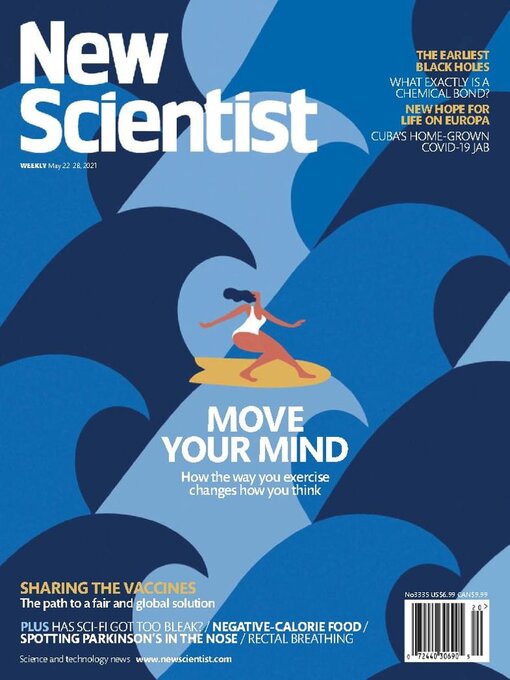New Scientist covers the latest developments in science and technology that will impact your world. New Scientist employs and commissions the best writers in their fields from all over the world. Our editorial team provide cutting-edge news, award-winning features and reports, written in concise and clear language that puts discoveries and advances in the context of everyday life today and in the future.
Elsewhere on New Scientist
Take vaccines global • Vaccinating everyone is the best way to reduce the risk of further variants emerging
New Scientist
Caution needed in the UK • Has lockdown been eased too soon in the UK considering the surge in cases of a coronavirus variant from India? Graham Lawton reports
How to share vaccines • Vaccines can help end the pandemic, but with dangerous variants and limited supplies, how do you protect people fairly? Michael Le Page and Layal Liverpool report
How is COVAX distributing vaccines?
Would an IP waiver boost supplies?
Cuba bids to vaccinate all citizens with home-grown shots
Europa’s secret lakes may host life • One of Jupiter’s moons could have large, habitable bubbles of liquid water near its icy surface
Female mice that lose a partner are wary of a new one
On the hunt for platypus DNA in Australia’s waterways • Decked out in wellies, Donna Lu went searching for traces of one of the world’s strangest creatures
Nose swab could point to early Parkinson’s disease
Whale sharks gulp in air to float vertically while eating
Searching for the earliest black holes • Some black holes may have formed just after the big bang – have we detected them?
Emoji meanings may morph as time goes by
The methane mystery • Levels of a powerful greenhouse gas are rising strangely fast, and no one knows why, reports Adam Vaughan
Methane eyes in the sky
Foreign fighters helped the ancient Greeks to wage war
Life-saving oxygen could be given anally
Genes reveal secrets of surviving the deep
Really brief
Interface lets man type just by thinking
Squeeze particles into a tight space and they capture light
Global warming is damaging cave art
Machine churning • Attempts to use artificial intelligence to diagnose covid-19 have so far been unsuccessful, says Michael Roberts
Do negative-calorie foods exist? • There is a persistent claim that eating celery burns more calories than it contains, but the truth is a little more complicated, writes James Wong
Day of the cicada
Your letters
Rise of the digital citizen • In the 21st century, governments can and must use technology better to serve the needs of their people, argues a new book. Karina Shah explores
When sci-fi got too real • Has science fiction become too serious to imagine better futures? That is the worrying take-home of a festival, finds Simon Ings
Don’t miss
The film column • Big neuroscience, big egos In Silico doesn’t look slick, but it is a sharply scripted account of the backstory to an ambitious, billion-euro project to model the intricacies of the human brain – and in just 10 years, says Simon Ings
Mind-altering moves • The way you move your body can change the way you think and feel, says Caroline Williams. Here are six ways to shift your brain into a new gear
‘This is a terrifying, nail-biting, exciting time to be alive’ • If humanity has any hope of tackling climate change, it needs to take action in this decade, sustainability researcher Kimberly Nicholas tells Richard Webb – and that challenges every aspect of how society works
Freaky bonding • Chemists are finding new and surprising ways that atoms can stick together – some of which could generate novel...

